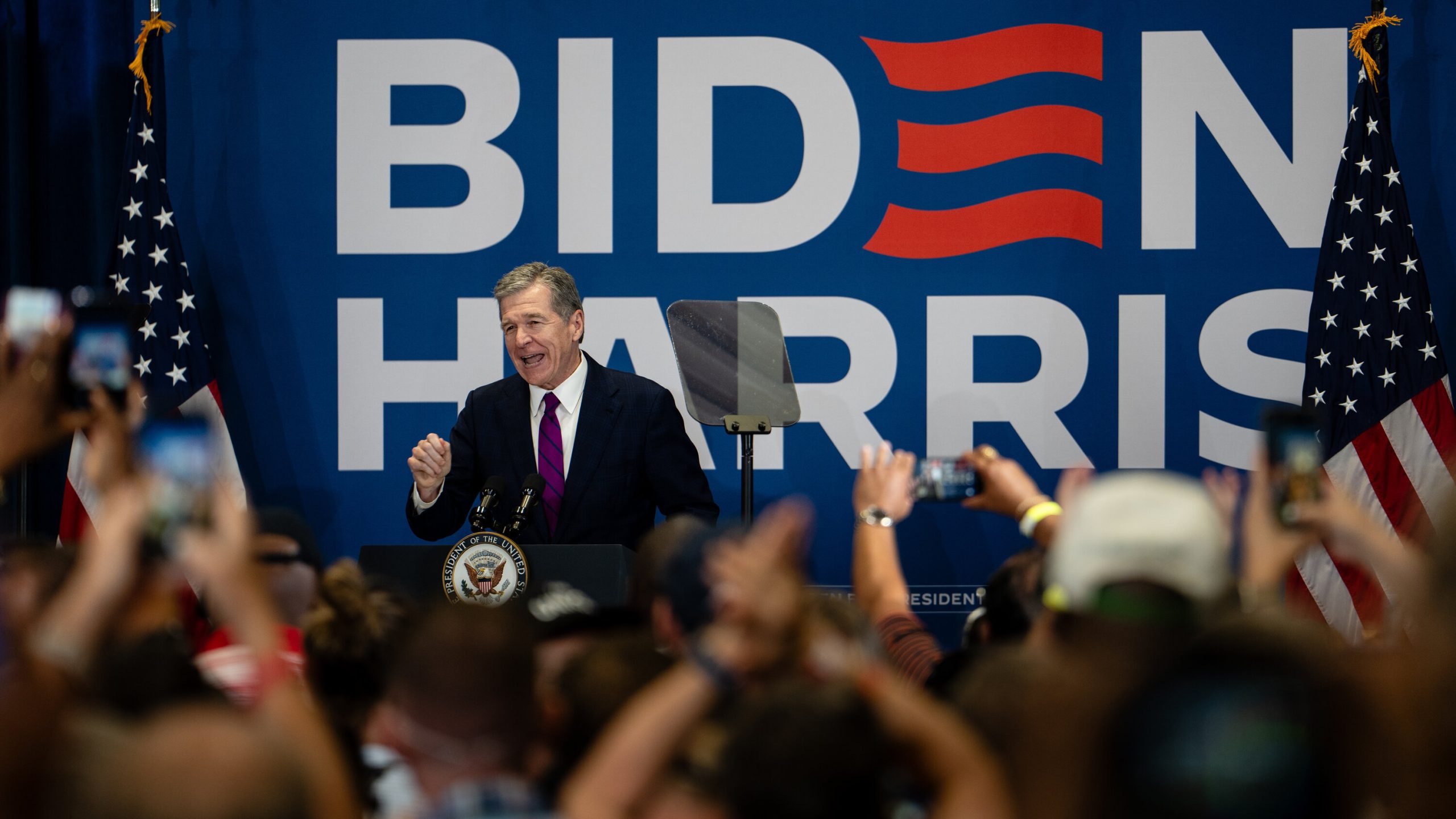North Carolina Governor Roy Cooper announced on Monday that he will not be joining the Democrats’ national ticket this fall, ending weeks of speculation.
He revealed that he had decided not to pursue the candidacy early on but chose not to disclose this publicly to avoid undermining Kamala Harris’s initial momentum.
“Early in the process, I informed the campaign that I did not want to be a candidate for this,” Cooper told on Tuesday after an event in Supply.
“My name had already been prominently put into the media and so I did not want to cause any problems for her or to slow her great momentum,” he explained.
“It was amazing the number of people that had come out and were excited. So I and the campaign both just decided we weren’t going to comment on this at this point.”
President Joe Biden announced on July 21 that he would not seek reelection and endorsed Harris, the current vice president and presumed Democratic nominee. Former President Donald Trump is the Republican nominee for the third consecutive election.
The party quickly rallied around Harris, and speculation about her potential running mate soon began. Cooper, a two-term governor from a critical electoral state, emerged as a prominent contender in media reports.
Cooper and Harris have a long-standing relationship from their time as attorneys general in their respective states. Cooper chose to go public about his decision as the pool of potential candidates for Harris’s running mate narrowed.
Harris is rumored to be considering several individuals, including Pennsylvania Governor Josh Shapiro, Kentucky Governor Andy Beshear, Minnesota Governor Tim Walz, Arizona Senator Mark Kelly, and Transportation Secretary Pete Buttigieg.
“There had begun to be a lot of speculation about the fact that I was not going to be in the pool of candidates, and in order to avoid the distraction of the speculation, I went ahead and announced that I was not going to be part of the group of people to be considered,” he told WRAL.
The announcement did not surprise some long-time observers of North Carolina politics. “Roy Cooper has never, to me, had national aspirations,” said David McLennan, a political scientist at Meredith College in Raleigh.
“Although he’s been a very solid governor and has some national name recognition, particularly among Democrats, you’ve never really heard him speak a lot about desiring to be president or vice president.”

Cooper, 67, is term-limited and cannot seek reelection as governor. Should Harris win in November, Cooper could potentially be considered for a cabinet position, such as commerce, or he might run for U.S. Senate in 2026.
“All options are on the table for me,” Cooper said. When asked about the Senate race, he replied, “That’s way too early for me to be thinking about.”
Republican Thom Tillis currently holds the Senate seat and is expected to seek a third term in 2026.
“It would be an interesting race,” McLennan remarked. “And given what might be happening in 2026 – could be control of the Senate again – a North Carolina Senate race would be very visible around the country.”
Cooper also mentioned that the race to replace him as governor between Lt. Governor Mark Robinson, a Republican, and Democratic Attorney General Josh Stein influenced his decision.
He was concerned that Robinson could use the opportunity to assert control and potentially distract from the national ticket if Cooper were out of state campaigning.
“We believe — and constitutional lawyers we have talked to believe — that he does not become acting governor when I leave the state,” Cooper explained.
“I know that’s the plain language of the constitution. But as it has been interpreted by other courts across the country, that really doesn’t make a lot of sense.”
During his tenure as governor, Cooper has frequently been out of state. Robinson, who became lieutenant governor in 2021, declared “North Carolina Solidarity With Israel Week” in October while Cooper was on a trade mission to Japan.
Cooper expressed concern that if he were the vice presidential candidate, Robinson might attempt to seize the spotlight, which could be a significant distraction for the presidential campaign.
The Robinson campaign declined to comment on Cooper’s remarks regarding Robinson’s potential actions as acting governor.
McLennan suggested that while Robinson might increase his visibility in the role, it would be surprising if he pursued executive orders or similar actions.
“He could hold press conferences and do the bully pulpit,” McLennan said, “but I’d be very surprised if he were to pursue an executive order or something like that.”


